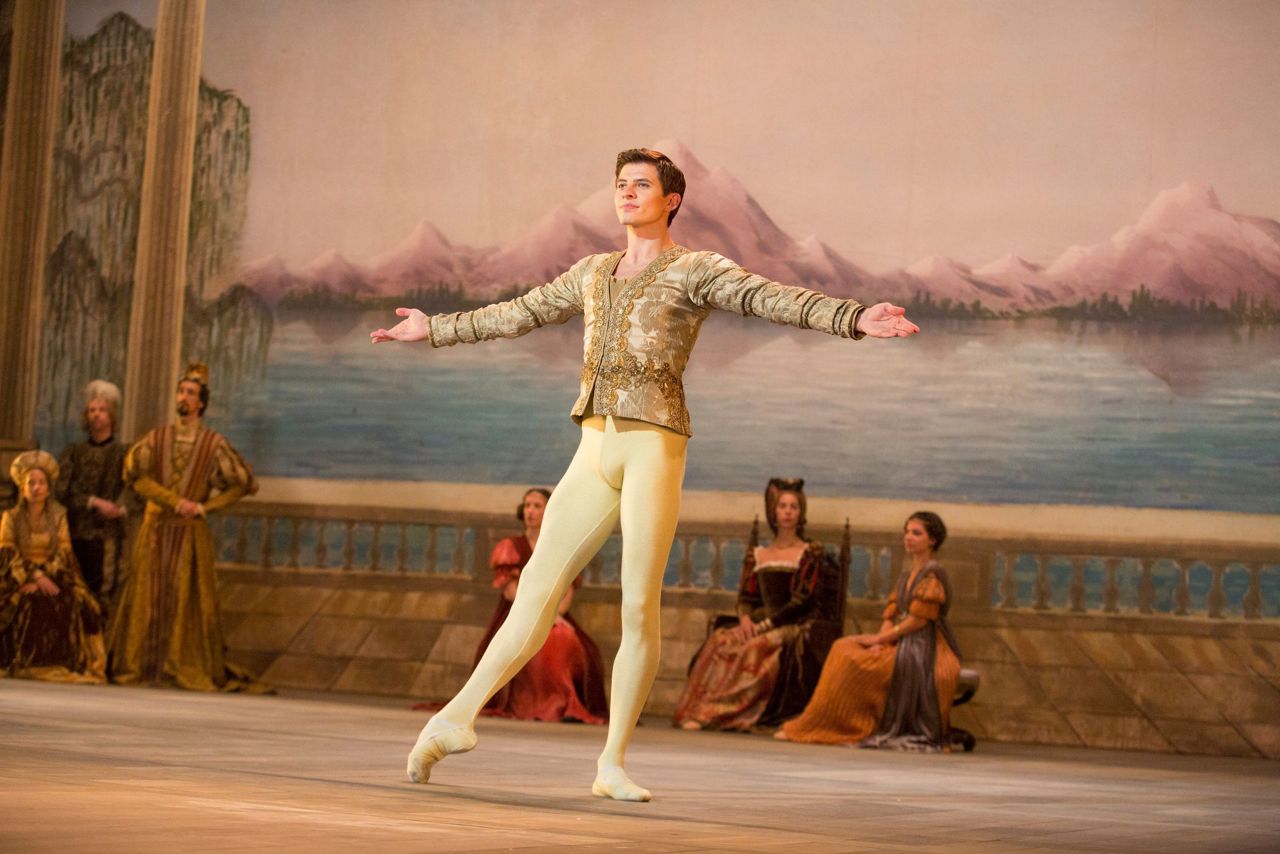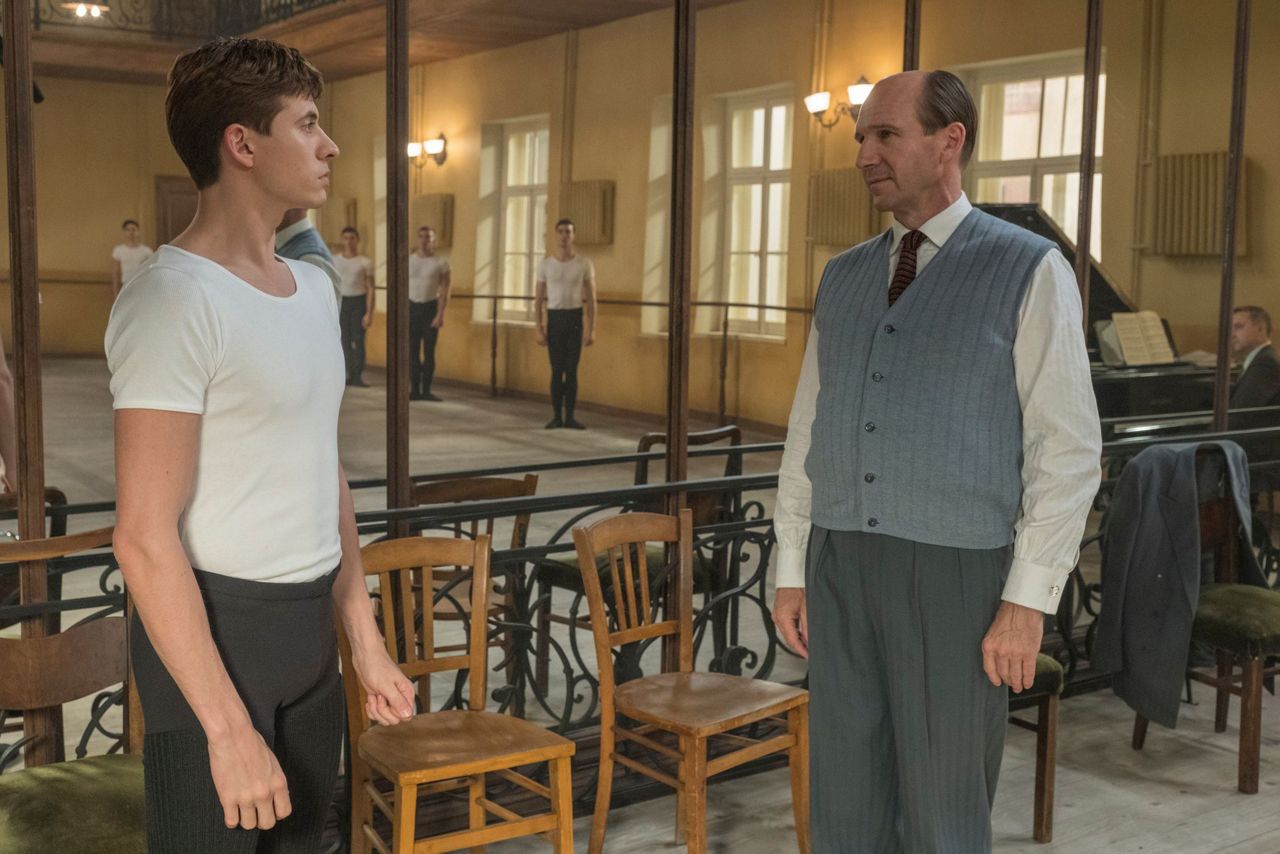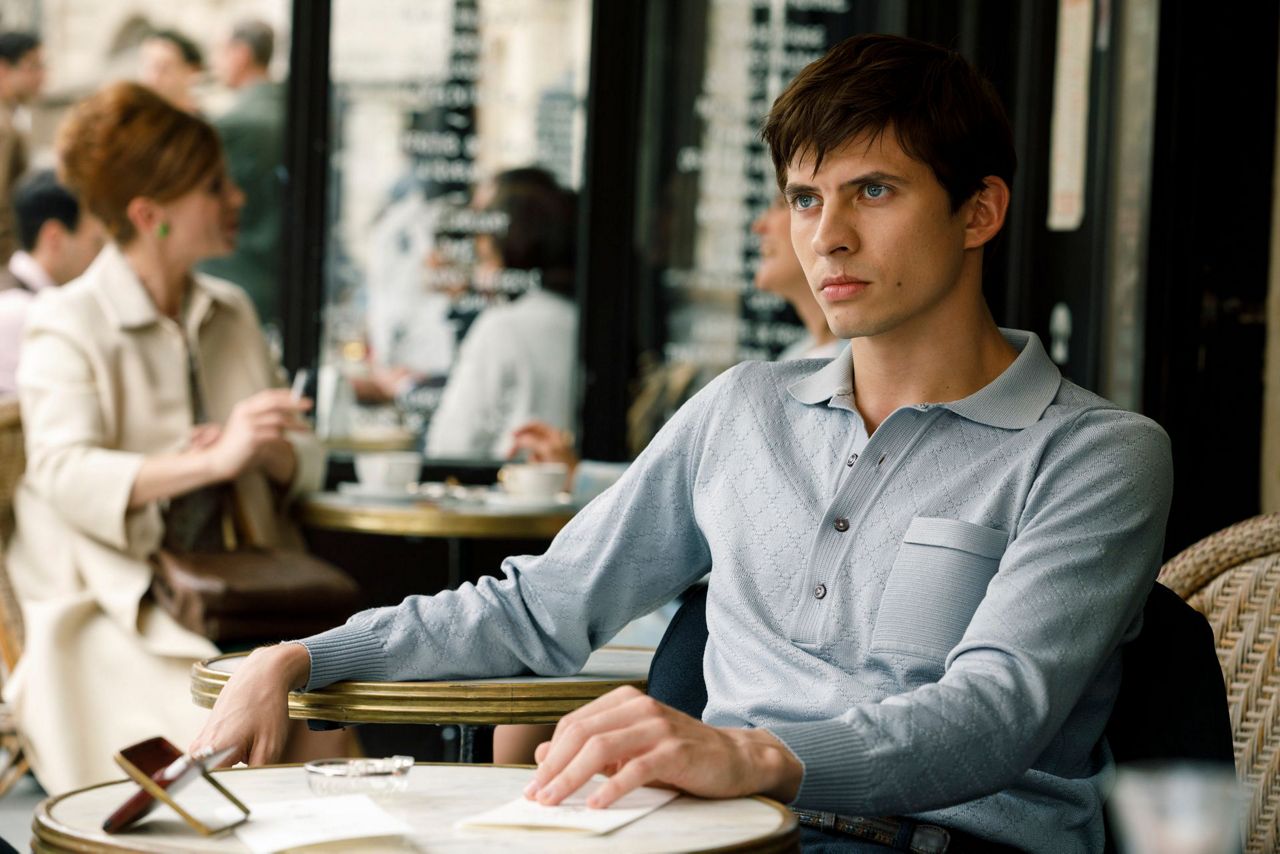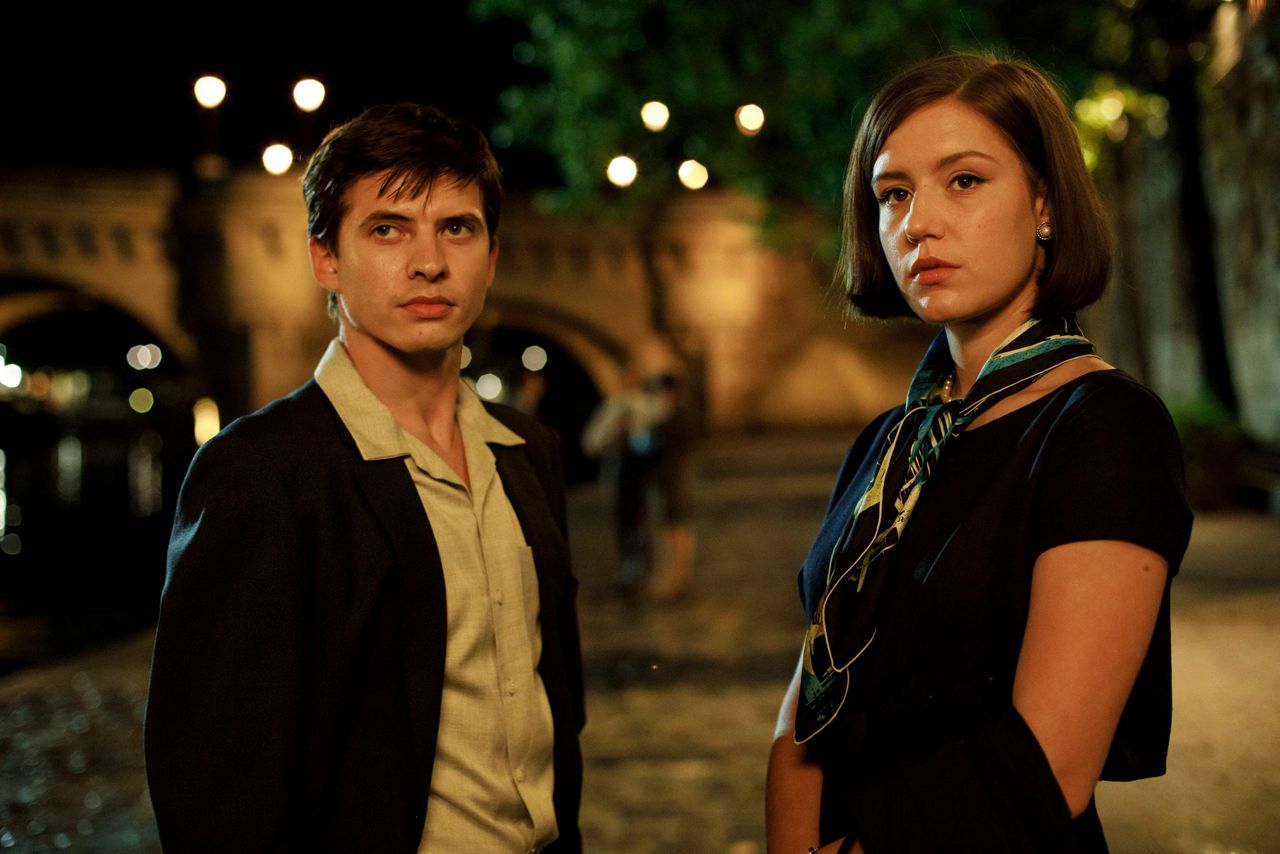The great Soviet ballet dancer Rudolf Nureyev does not come across as particularly likable in "The White Crow ," Ralph Fiennes' elegant biopic of his early years.
Nureyev is arrogant, cruel, entitled, irritable and deeply resentful of his modest, peasant upbringing. Yet this prodigy of dance and voracious consumer of the arts is undeniably compelling to watch for a few hours. Just be prepared to wince at many of his choices, some of which helped him reach the top of the dance world and others which will make you want to refer Rudi to a good therapist.
Fiennes, who directs and also plays the part of an influential ballet instructor in Rudi's life, Pushkin, has been mulling over this story for about two decades, since he read author Julie Kavanagh's 2007 biography, "Nureyev: The Life." His long study is evident in the final product, which powerfully blends the sublime transcendence of an artist's intellectual awakening with the exciting tension of a political thriller.
The dance sequences, in training and performance, are magnificent. Fiennes is fascinated by the athleticism of ballet, and the granular details of the flexing muscles in feet and forearms.
The film skips back and forth in time, from Rudi's sepia-toned and poverty-stricken childhood in frozen Ufa (he was born on a train on the trans-Siberian railway) with his mother and sisters, to his time with the Kirov Ballet and the company's pivotal trip to Paris in 1961. This has a bit of a disorienting effect. The flashbacks to childhood are beautiful to look at, but are so subtle that they hardly reveal anything about why Rudi is the way he is — a prickly outsider, or "white crow."
Paris is where the film, and Rudi, comes alive. Rudi is played by Ukrainian dancer Oleg Ivenko in his acting debut and, in addition to being a gorgeous dancer, he does a fine job holding his own against Fiennes and Adele Exarchopoulos, who plays Clara Saint, a Parisian woman who helps show Rudi the nightlife in her city.
In Paris, Rudi gets a taste of the liberated life, going to museums, basking in the beauty of Gericault's "The Raft of the Medusa" at the Louvre, and staying out all night with Parisian intellectuals — all while KGB agents monitor his every move. This sort of freedom and fraternization with Westerners obviously doesn't sit well with them. For the KGB agents, it's a fascinating dance: They want to appear enlightened and superior on French soil, but they also need to control Soviet artists and keep them in line.
That tension comes to a head in a riveting showdown at the airport. A Wikipedia page can tell you what happened, but for those who don't know Nureyev's story, I won't "spoil" it.
This is not a short film, clocking in at over two hours, and it's also a patient one that requires more focus than, say, another three-hour film out this week. But it's also a rewarding experience, and a true celebration of the arts and the sometimes boorish personalities behind their beauty.
"The White Crow," a Sony Pictures Classics release, is rated R by the Motion Picture Association of America for "some sexuality, graphic nudity, and language." Running time: 127 minutes. Three and stars out of four.
---
MPAA Definition of R: Restricted. Under 17 requires accompanying parent or adult guardian.
---
Follow AP Film Writer Lindsey Bahr on Twitter: www.twitter.com/ldbahr
Copyright 2019 The Associated Press. All rights reserved. This material may not be published, broadcast, rewritten or redistributed.






